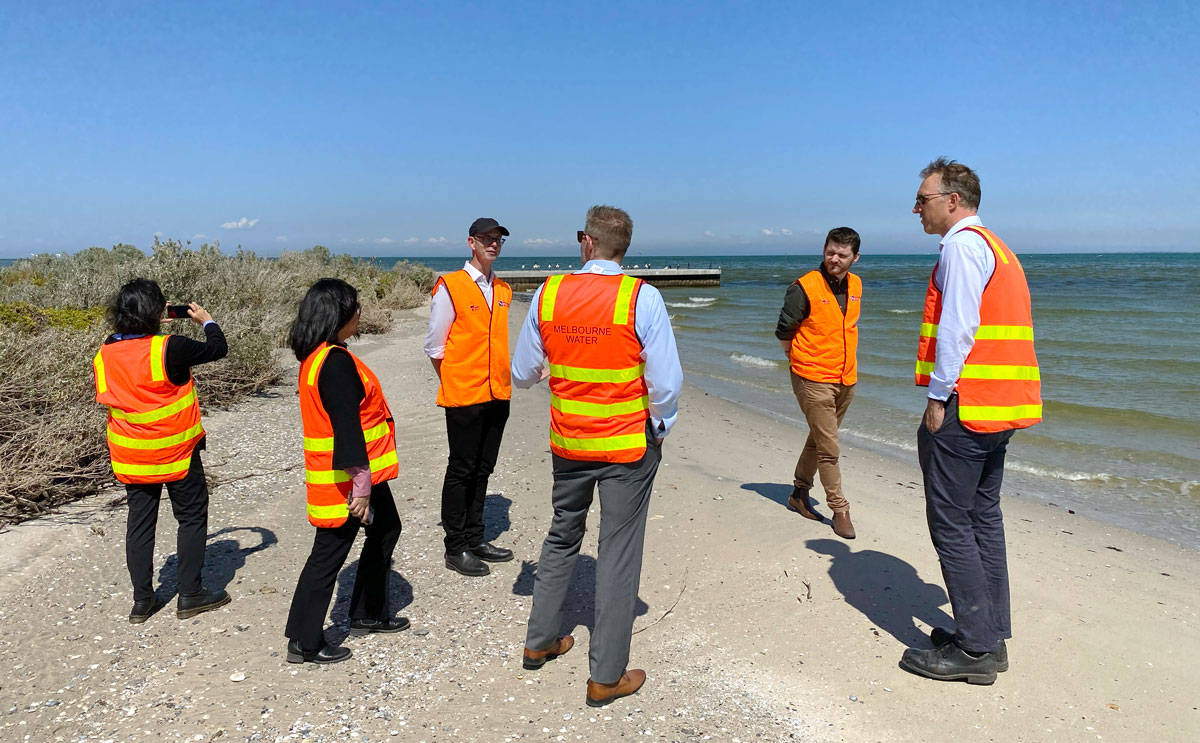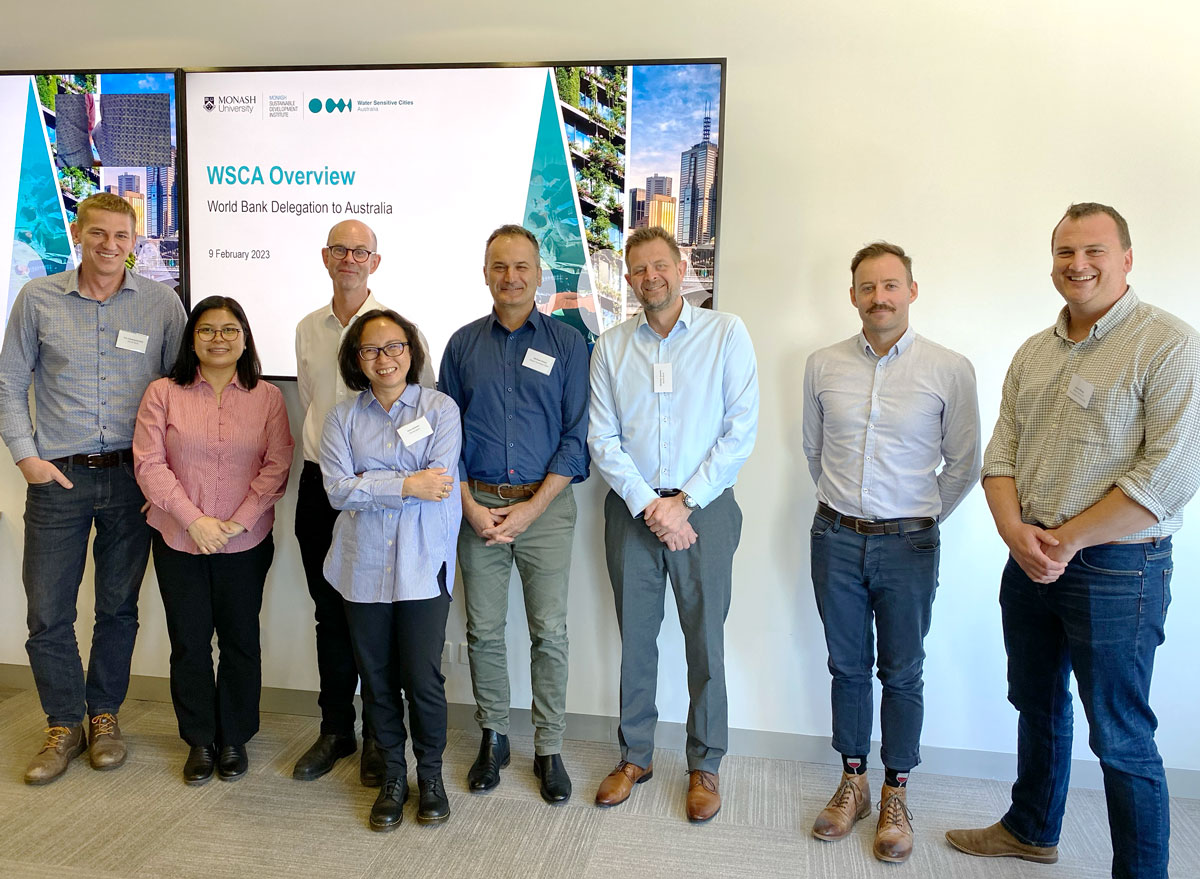Developing these relationships takes time. Over several years, Water Sensitive Cities Australia (and before it the CRC for Water Sensitive Cities) has been working with the World Bank to develop integrated solutions for issues such as disaster risk reduction, water and sanitation, flood control, water infrastructure and climate resilience. These are complex issues, so when we had an opportunity to coordinate a roundtable dialogue, Water Sensitive Cities Australia was pleased to co-host a delegation of representatives from the World Bank’s water team in Washington DC along with Asia and Pacific (APAC) regional representatives.
The visit was an opportunity to open dialogue and share experiences between the World Bank and Australian partners, including Water Sensitive Cities Australia, Monash Sustainable Development Institute, the Water Services Association of Australia, the Department of Energy Environment and Climate Action, the Essential Services Commission (Victoria) and Melbourne-based utilities.
On Day 1, Water Sensitive Cities Australia CEO Ben Furmage initiated a discussion on global and regional good practice examples in water resource, water supply and sanitation management. One key interest was to look to future opportunities for knowledge exchange in the Asia Pacific region, linking back to Australian experience. As part of the exposure to Australian experience, we also visited Melbourne’s Western Treatment Plant. Kris Coventry from Melbourne Water explained the role and evolution of the site in supporting circular economy opportunities that integrate water, waste, energy, and agriculture – all possible while retaining and extending the values of one of Australia’s largest iconic, Ramsar-listed bird reserves.

The Water Services Association of Australia hosted the second day of the exchange. Professor John Thwaites (from Monash Sustainable Development Institute), state government and utility representatives discussed water sector reform, and water sustainability and management in Victoria. WSCA, Monash Sustainable Development Institute and Monash University shared their experiences with advancing water sensitive cities in Asia, and the latest on the DFAT-funded RUCAS and RISE programs.
Our thanks to Eric Vanweydeveld and Shona Fitzgerald (World Bank), Professor John Thwaites (Monash Sustainable Development Institute), Adam Lovell (Water Services Association of Australia (WSAA)), and all those who gave their time and insights supporting this valuable dialogue.

Access arrangements for Water Sensitive Cities (WSC) Tools

Protecting headwater streams: Ideas for Aitken Creek

Transforming Thailand’s Western Lower Chao Phraya River basin with multifunctional blue–green corridors

Water Sensitive Cities Australia at OzWater2025

